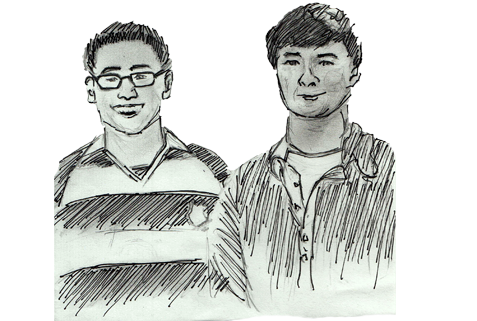 Imagine asking three of your peers — people in their late teens or early 20s — about their religious affiliations. On average, according to a recent survey from The Pew Forum on Religion & Public Life, one of these three people will say that he doesn’t affiliate with any one organization or faith in particular.
Imagine asking three of your peers — people in their late teens or early 20s — about their religious affiliations. On average, according to a recent survey from The Pew Forum on Religion & Public Life, one of these three people will say that he doesn’t affiliate with any one organization or faith in particular.
Perhaps the average Georgetown student would not be surprised by this information. After all, it’s our friends, classmates, brothers and sisters who answer surveys like the one above. But in the long run, this lack of religiosity among young people is rather remarkable. The current decline in religious affiliation, both among young people and in the population in general, is faster paced and more acute than any similar decline in recorded history. Nearly 20 percent of Americans identify as “unaffiliated,” which marks a 4 percent increase from 2007.
This great burst of disaffiliation calls for an explanation, and many attribute the trend to growing disbelief. Formal lack of belief has certainly gained larger measures of social acceptance recently, as the New Atheists — intellectuals like Richard Dawkins and the late Christopher Hitchens — have promoted their brand of disbelief in best-selling books.
But formal atheism or agnosticism doesn’t seem to be the primary causes of declining affiliation. People still have faith: Even among this group of unaffiliated Americans, over 60 percent express belief in God. One in three recounts a religious or mystical experience — a first-person encounter with the divine. Rather, dissatisfaction with organized religion seems to explain this pattern. Although many unaffiliated individuals believe in God and may often subscribe to some religious ideas such as heaven, they see participation in a religious community to be an unnecessary part of their spiritual life.
We believe this disaffiliation and disenchantment with organized religion to be a great tragedy. In our view, community, an idea at the very core of the Catholic mission, is a necessary and enriching aspect of any spirituality. The community at Mass is a fundamental part of the human experience with the divine. Moreover, a community and organization that offers an internally coherent moral system provides a better path to a well-lived, ethical life than individual conceptions of what is good.
While at college — and especially at Georgetown — students often spend their weeks bouncing from class to rehearsal, dinner, networking events and study sessions without really engaging in communal activities. Mass is one of those few times when individuals acting individually become part of a community. Regardless of where you come from, what your politics are or what socioeconomic class you fall in, Mass is a uniting force for prayer and adoration that knows none of these boundaries. When so many believe that organized religion is too controversial or too divisive, we see the Church and Mass as means of unity and inclusion.
The Church also offers a coherent framework for living a good human life. Church teachers throughout history have striven to interpret scripture and revelation in a way that converts the Bible’s often contradictory instructions into a livable set of guidelines. The Church also offers a group of dedicated priests to apply the Church’s teachings to life-as-lived in their homilies at Mass. Humans benefit from this kind of guidance; drawing from a consistent, well-formed and long-standing moral tradition is, in our view, substantively better than any alternative.
Luckily, the Church need not change course too drastically in response to rising disaffiliation in America — if she needs to change at all. As long as the Church remains a medium through which human beings can commune with each other and with God and gives us a way to approach life’s challenges and mysteries in a way that leads to happier and more flourishing lives in God, she will survive.
Alex Honjiyo and Pat Gavin are seniors in the School of Foreign Service and the College, respectively. AGGIORNAMENTO appears every other Tuesday.













